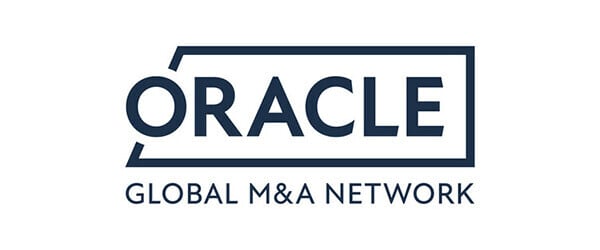
posted 1st August 2024
Following Labour’s win in the 2024 General Election, King Charles III outlined in his recent speech about what the UK can expect regarding new legislation.
Amongst this included the announcement of upcoming significant changes to employment law, encapsulated in the forthcoming Employment Rights Bill. These reforms are pivotal for any business owner to know in the current UK climate, especially across the mergers and acquisitions (M&A) sector.
As a corporate advisory company, we emphasise the importance of understanding legislative changes within the UK.
In this article, we will provide business owners with a clear understanding of the upcoming changes to the forthcoming Employments Rights Bill and examine the implications they will have on M&A businesses across the UK.
Key Points of the Employment Rights Bill
The King’s speech highlighted various upcoming changes, which will see businesses having to abide by new, which will affect both employers and employees in the workplace.
The key changes include:
- Parental Leave, Sick Pay, and Unfair Dismissal Protections from Day 1: From the first day of employment, parental leave, sick pay, and protections from unfair dismissal will be available for employees with specific rules for probationary periods.
- Ban on Zero-Hour Contracts: With Zero contract hour roles now the norm in the UK, the forthcoming bill will see a ban on zero-hour contracts and instead workers will receive contracts that reflect their regular working hours.
- End of ‘Fire and Rehire’ Practices: The Bill will see an end to the ‘fire and rehire’ and ‘fire and replace’ practices as businesses adopt fairer and more transparent methods.
- Statutory Sick Pay Reforms: This aims to strengthen worker support, remove the lower earnings limit and eliminate the waiting period. This will ensure all employees receive immediate financial assistance when they become ill.
- Default Flexible Working: From the first day of employment, workers can expect flexible work to become the default, with employers required to accommodate this as far as is reasonable.
- Protection for New Mothers: New mothers will soon be able to benefit from the Bill as it will soon become unlawful to dismiss a woman for six months after she returns from maternity leave, with certain exceptions.
- Creation of the Fair Work Agency: The establishment of the Fair Work Agency will enforce workplace rights, introducing a new regulatory body.
- Fair Pay Agreement in Adult Social Care: The Bill introduces a Fair Pay Agreement in the adult social care sector, which will aim to standardise pay for employees.
- Repeal of Minimum Service Levels Law for Industrial Action: The repeal of laws on minimum service levels relating to industrial action could expect more frequent strikes.
- Simplified Union Recognition Process: This involves having a simplified statutory recognition process for trade unions as well as introducing workers and union members’ rights.
If you’re looking for advice on how these changes will impact your business, please reach out to our expert team for advice on 0330 107 8498 or email hello@gsverde.law
Understanding the New Employment Rights Bill and Its Implications for M&A Activities
It’s fair to say that the significant alterations to the Employment Rights Bill will see M&A businesses across the UK change drastically to the way they operate. Here, we further examine the impact of the New Employment Rights Bill and bring a clear understanding of the upcoming changes and the implications your M&A business can expect:
- Parental Leave, Sick Pay, and Unfair Dismissal Protections from Day 1: Under this change, businesses will be impacted with regards to the onboarding process and will need to adjust initial contracts for employees to include these benefits from the first day of employment. Alterations will be made to M&A transactions going forward, whereby due diligence needs to thoroughly review employment terms of a target company to check alignment with new regulations. If businesses fail to include these benefits in contracts, compliance issues and potential legal challenges can be expected as well as an increased risk during M&A transactions.
- Ban on Zero-Hour Contracts: The ban on zero-hour contracts will mean that businesses will need to reassess their employment contracts to make sure compliance takes place. Businesses will see a difficulty with staff flexibility, as variable hours for their workforce will not be available. In addition, M&A businesses will experience an impact with the evaluation of payroll systems and workforce management of the target company. Acquirers of a business will need to take into consideration how the removal of zero-hour contracts will affect labor costs and operational flexibility going forward, as this can potentially see strategic changes to post-acquisition.
- End of ‘Fire and Rehire’ Practices: Removing ‘fire and rehire’ practices will require M&A businesses to review current employment practices and restructuring strategies within their companies. Under this new change, businesses will need to create fairer methods and may need to alter existing employee agreements and policies. Business owners that are considering acquisition must examine a target company's newly reconstructed practices to make sure they comply with the new statutory code. Valuations and integration plans can be affected, as not complying with this could lead to legal repercussions and disruption after an M&A transaction.
- Statutory Sick Pay Reforms: Removing the lower earnings limit and waiting period for statutory sick pay will see businesses provide immediate sick pay to each employee regardless of their earnings. This reform will also increase financial costs, especially for businesses that employ many low-wage workers. M&A businesses will experience this as an addition to their current compliance requirements and financial due diligence. Those considering acquiring a business must think about the significant impact this will have on a target company's benefits expenses and payroll, as well as the increased sick pay liabilities which will need to be adjusted and incorporated into financial models.
- Default Flexible Working: By making flexible working a default from the first day of employment, businesses will need to develop comprehensive flexible working policies and invest in necessary technological and logistical support. As far as M&A transactions are concerned, a target company’s assessments for remote work capabilities and policies will be affected. When buying a company, acquirers need to make sure that infrastructures to support flexible working are correctly in place and policies comply with new requirements. This may result in M&A companies needing to invest in additional technology and workplace management practices changes post-acquisition.
- Protection for New Mothers: Introducing this will mean new mothers will be protected from being dismissed from a company for six months after returning from maternity leave. This will require a business to enhance planning for maternity leave coverage and reintegration processes for new mothers. Under this new change, M&A businesses will need to review their maternity leave policies and make sure they comply with new regulations. M&A businesses will experience an impact on operational continuity and workforce planning if changes are not complied with. This may also result in having to manage extended maternity leave coverage for new mothers and the reintegration of returning employees.
- Creation of the Fair Work Agency: This introduces a new regulatory body that businesses must comply with in order to avoid penalties, and will see M&A businesses experience another compliance when it comes to carrying out due diligence. M&A business owners considering acquisition need to examine a target company’s commitment to workplace rights, as well as being prepared to address any identified gaps in that target company. The creation of the Fair Work Agency may influence acquisition strategy and require post-merger adjustments to check for compliance and avoid enforcement actions.
- Fair Pay Agreement in Adult Social Care: Introducing a Fair Pay Agreement in the adult social care sector means businesses must prepare for increased wage bills and meet new pay standards. For M&A activities in this sector, this impacts the financial evaluation and operational planning of the target company. Acquirers must consider the additional labour costs and ensure that the target company’s pay structure aligns with the new standards. This can affect the overall valuation and necessitate strategic adjustments to maintain financial stability post-acquisition.
- Repeal of Minimum Service Levels Law for Industrial Action: This significant change may lead to businesses experiencing more strikes and the need to create contingency plans to manage potential disruptions. M&A businesses will need to examine a target company’s risk exposure regarding industrial action and make sure that contingency plans are in place at the time of a transaction. This can influence the risk assessment and integration strategy. The increased risk of frequent strikes may mean that M&A businesses could experience disruption to operations, which would have a significant impact on financial performance.
- Simplified Union Recognition Process: This could see empowerment within a workforce whereby M&A businesses should prepare for increased union presence as well as effective communication with unions. Under this change, M&A businesses will need to undertake a thorough examination of a target company’s union relationships and its willingness to comply with the new process. As a result of the simplified Union Recognition Process, acquirers need to manage increased union activity and negotiate with unions to maintain post-acquisition operational efficiency.
Expert advice from GS Verde Group
As the UK political shift gets underway and legislative changes unfold, it’s important for M&A business owners to be aware and be prepared for how these reforms will impact the way companies will operate going forward.
The 2024 Employment Law Reform Bill will include the examination of due diligence to ensure compliance with increased costs and the development of workplace strategies. It’s crucial for M&A businesses to understand these changes to make sure that smoother transitions take place.
At GS Verde Group, we are always keeping up to date with political climate change and offer our expertise in navigating political and economic changes. We provide expert guidance and support to help your M&A business navigate the upcoming legislative changes effectively.
The GS Verde Group are business-focused experts in getting deals done. Combining all the services needed to complete a corporate transaction, including legal, corporate finance, tax, accountancy, and communications, GS Verde acts as a complete advisory team and provides a truly end-to-end service.








